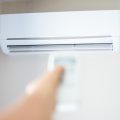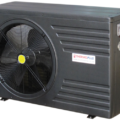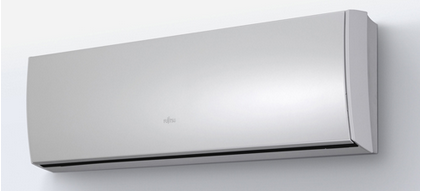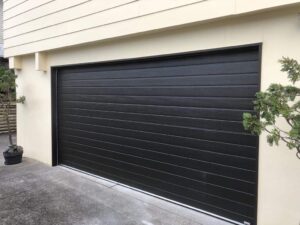It is essential to choose the appropriate size for your heat pump if you want to achieve maximum energy efficiency and maintain a comfortable environment inside your home.
Your home will be comfortable throughout the year with the help of an appropriately sized heat pump, which will keep it warm in the winter and cool in the summer without wasting energy or producing temperature swings.
We will walk you through the process of correctly sizing your heat pump, taking into account the different elements that can affect its performance, in this detailed guide that we have prepared for you.
We will offer you the knowledge you require to make an educated selection, which includes comprehending load calculations as well as taking into consideration the kind and capacity of your heat pump.
Why Proper Sizing Matters
Proper sizing of your heat pump is essential for a number of different reasons. To begin, if your heat pump is not adequately sized, it will have a difficult time maintaining a steady and pleasant temperature within your home, particularly when harsh weather conditions are present.
On the other hand, a larger heat pump will turn on and off more frequently, which will lead to inefficient use of energy as well as potential wear and tear on the system.
A heat pump that is the wrong size for your home might cause uneven temperatures throughout the space, as well as inadequate control over the relative humidity in the air.
You can improve the overall comfort of your house, optimise the energy efficiency of your heat pump, and save money on your monthly electricity bills all by ensuring that it is the appropriate size.
Understanding Load Calculation
Performing a load calculation is one of the most important steps involved in sizing a heat pump appropriately. This calculation takes into account a variety of factors which impact the requirements for heating and cooling that your property has.
Manual J, which is also known as the Residential Load Calculation, is the method of load calculation that is employed the most frequently. Manual J takes into account a wide range of criteria, some of which are the climate in your area, the insulation in your home, the size and number of windows and doors, the number of people living there, and more.
Professionals in the field of heating, ventilation, and air conditioning (HVAC) have access to specialised software that allows them to do precise calculations of the heating and cooling load requirements for a given residence.
Factors Affecting Heat Pump Sizing
The size of the heat pump that is necessary for your house will depend on a number of factors. If you have a good understanding of these factors, you will be able to make an informed decision and guarantee that your heat pump is operating at its full potential. The following are some important considerations to keep in mind:
1. Climate and Temperature Extremes
The temperature range that is typical in your area is one of the most important factors to consider when choosing the size of your heat pump. If you reside in an area that has significant seasonal temperature swings, such as severely cold winters or hot and humid summers, the capacity of your heat pump will need to be adjusted appropriately.
When it comes to heating, heat pumps are evaluated based on their Heating Seasonal Performance Factor (HSPF), whereas when it comes to cooling, they are evaluated based on their Seasonal Energy Efficiency Ratio (SEER). Ratings of HSPF and SEER that are higher indicate greater efficiency and performance under adverse environmental conditions.
2. Insulation and Home Efficiency
The amount of work required to heat and cool your home is strongly affected by the quality of the insulation in it. As insulation contributes to the retention of heat during the winter and to the maintenance of a cooler interior temperature during the summer, homes that have adequate insulation need less powerful heat pumps.
Homes that have inadequate insulation, on the other hand, will have higher heating and cooling loads, which will require a more powerful heat pump. In addition to assisting with the sizing of your heat pump, increasing the insulation in your home can cut down on energy usage and bring your monthly power expenses down.
3. Home Size and Layout
When determining the appropriate size of a heat pump for your home, the most important factors to take into account are its dimensions and its floor plan.
When it comes to maintaining a suitable temperature across the entirety of a larger home, the heating and cooling capacity need to be significantly increased.
In addition, the layout of your house, which includes the number of levels as well as the location of windows and doors, can have an impact on the amount of heat that is transferred and lost.
When choosing the optimal dimensions for your heat pump, a trained and experienced HVAC expert will take all of these aspects into consideration.
4. Occupancy and Heat Gain
The number of occupants in your home and their activities can contribute to the overall heat gain within the space. For instance, a residence that has a large number of people living in it or several machines that produce heat, such as ovens or dryers, will have a larger heat gain.
When determining the appropriate size for your heat pump, you need to take into account the higher amount of heat that will be generated during the summer months.
5. Ductwork Design and Efficiency
It is essential for the maximum performance of your heat pump to have ductwork that has been properly built and is efficient. Airflow can be restricted if ducts are either too narrow or not installed correctly, which can lead to a decrease in both efficiency and performance.
On the other hand, having ducts that are too large might lead to air leakage and a reduction in efficiency.
Your heat pump’s capacity will be more accurately estimated, and it will run more effectively, if you take the time to ensure that its ducting has been properly designed and sealed.
The Importance of Professional Sizing
It is essential for the maximum performance of your heat pump to have ductwork that has been properly built and is efficient. Airflow can be restricted if ducts are either too narrow or not installed correctly, which can lead to a decrease in both efficiency and performance.
On the other hand, having ducts that are too large might lead to air leakage and a reduction in efficiency. Your heat pump’s capacity will be more accurately estimated, and it will run more effectively, if you take the time to ensure that its ducting has been properly designed and sealed.
Choosing the Right Heat Pump Type and Capacity
After you have chosen the correct size for your heat pump, the next step is to determine the type and capacity that will serve your requirements in the most effective manner.
Heat pumps are available in a wide variety of configurations, the most common of which are ductless mini-split systems, air-source heat pumps, and ground-source (geothermal) heat pumps. Each type has a unique set of benefits and considerations, such as the requirements for installation and the overall cost.
You can identify the type of heat pump that will work best for your home by conferring with an expert in heating, ventilation, and air conditioning (HVAC).
When it comes to capacity, selecting a heat pump that corresponds with the outcomes of the load calculation is absolutely necessary. If the heat pump is oversized or undersized for the space, it will not operate efficiently, which will result in higher energy bills and less comfort.
You can assure optimal performance and energy efficiency in your heat pump by choosing a heat pump that has the proper capacity for your home.
Other Considerations for Heat Pump Sizing
In addition to the factors discussed above, there are a few other considerations to keep in mind when sizing your heat pump:
1. Energy Efficiency Ratings
When selecting a heat pump, pay close attention to the ratings it has for its energy efficiency. It is important to look for models that have high SEER and HSPF ratings as these numbers suggest improved energy efficiency and reduced operating expenses.
Heat pumps that have been awarded the Energy Star label are a good choice since they fulfil the stringent efficiency requirements established by the Environmental Protection Agency (EPA).
2. Noise Levels
Consider the noise levels of the heat pump, especially if it will be installed near living spaces or bedrooms. Look for models with lower decibel ratings for quieter operation.
Noise-reducing features, such as insulated cabinets and variable-speed fans, can also contribute to a more comfortable and peaceful indoor environment.
3. Maintenance Requirements
Maintenance requirements can vary greatly depending on the kind of the heat pump. There are some that might need to have their filters changed more frequently or have professional maintenance performed.
When shopping for a heat pump, keep these maintenance requirements in mind to ensure that you will be able to keep up with the recommended maintenance plan. This will ensure that your heat pump will work at its peak for as long as possible.
4. Long-Term Cost Considerations
While upfront costs are an important consideration, it’s essential to also evaluate long-term cost savings. A more efficient heat pump may have a higher initial cost but can result in significant energy savings over its lifespan.
Consider the energy efficiency ratings and estimated operating costs when making your decision.
Conclusion
The correct sizing of your heat pump is essential if you want to achieve maximum energy efficiency, keep your home at a pleasant temperature, and achieve the lowest possible operating expenses.
You can decide the optimum size and capacity for your heat pump by taking into account a variety of criteria, including the environment, the insulation, the size of your home, and load estimates.
The most precise sizing can be achieved by working with HVAC professionals who can also guide you in selecting the best kind of heat pump for your individual requirements.
You can enjoy dependable heating and cooling throughout the year with a heat pump that has been correctly sized and installed, all while lowering your overall energy usage and minimising your negative impact on the environment.
Looking for expert advice on heat pumps in Hamilton or anywhere in New Zealand? Goldstar Heat Pumps offers tailored consultations and professional opinions to ensure you get the perfect fit for your space.











